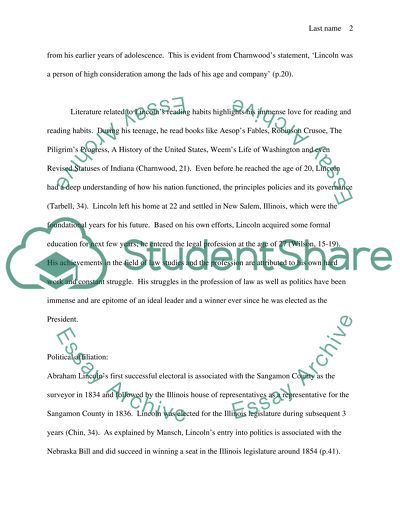Cite this document
(“Abraham Lincoln. His Life and Achievements Research Paper”, n.d.)
Retrieved de https://studentshare.org/history/1390430-abraham-lincoln
Retrieved de https://studentshare.org/history/1390430-abraham-lincoln
(Abraham Lincoln. His Life and Achievements Research Paper)
https://studentshare.org/history/1390430-abraham-lincoln.
https://studentshare.org/history/1390430-abraham-lincoln.
“Abraham Lincoln. His Life and Achievements Research Paper”, n.d. https://studentshare.org/history/1390430-abraham-lincoln.


